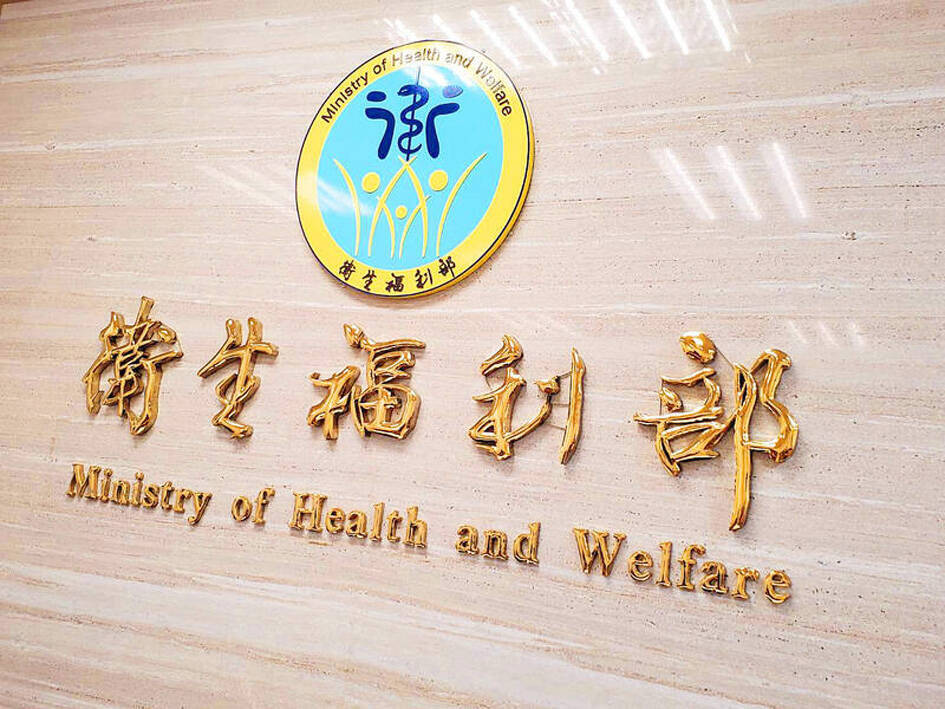Health-adjusted life expectancy (HALE) in Taiwan fell to 71.4 years in 2021, down 10.4 months from the previous year, marking the largest decline in 21 years, the latest Ministry of Health and Welfare data showed.
The COVID-19 pandemic is likely to blame for the drop, Linkou Chang Gung Memorial Hospital deputy superintendent Chiu Cheng-hsun (邱政洵), who also is a member of the Advisory Committee on Immunization Practices, said yesterday.
HALE, defined as the average length of time a person can live in full health, globally plummeted by 1.5 years to 61.9 years from 2019 to 2021, the WHO said in a news release on Friday.

Photo: Lin Hui-chin, Taipei Times
This means that HALE in Taiwan began showing signs of significant decline a year later than the world, Chiu said, adding that the Omicron variant of SARS-COV-2 can cause long-lasting damage to health, including an increased risk of stroke.
The lesson of the government’s response to COVID-19 is the importance of strengthening preventive medicine and medical infrastructure before another pathogen capable of causing serious harm to public health strikes again, he said.
Influenza is one of the infectious diseases that pose a similar risk to health, Chiu said.
Improved preventive medicine, faster introduction of new drugs and technology, better access to health checkups are crucial for public health, Shin Kong Hospital vice superintendent Hung Tzu-jen (洪子仁) said.
Improving case management in healthcare, subsidized cancer screening for younger Taiwanese and post-operative patient care are some of the WHO recommendations that Taiwan can adopt, Hung said.

DEFENSE: The National Security Bureau promised to expand communication and intelligence cooperation with global partners and enhance its strategic analytical skills China has not only increased military exercises and “gray zone” tactics against Taiwan this year, but also continues to recruit military personnel for espionage, the National Security Bureau (NSB) said yesterday in a report to the Legislative Yuan. The bureau submitted the report ahead of NSB Director-General Tsai Ming-yen’s (蔡明彥) appearance before the Foreign and National Defense Committee today. Last year, the Chinese People’s Liberation Army (PLA) conducted “Joint Sword-2024A and B” military exercises targeting Taiwan and carried out 40 combat readiness patrols, the bureau said. In addition, Chinese military aircraft entered Taiwan’s airspace 3,070 times last year, up about

The Overseas Community Affairs Council (OCAC) yesterday announced a fundraising campaign to support survivors of the magnitude 7.7 earthquake that struck Myanmar on March 28, with two prayer events scheduled in Taipei and Taichung later this week. “While initial rescue operations have concluded [in Myanmar], many survivors are now facing increasingly difficult living conditions,” OCAC Minister Hsu Chia-ching (徐佳青) told a news conference in Taipei. The fundraising campaign, which runs through May 31, is focused on supporting the reconstruction of damaged overseas compatriot schools, assisting students from Myanmar in Taiwan, and providing essential items, such as drinking water, food and medical supplies,

STRICTER ENFORCEMENT: Taipei authorities warned against drunk cycling after a sharp rise in riding under the influence, urging greater public awareness of its illegality Taipei authorities have issued a public warning urging people not to ride bicycles after consuming alcohol, following a sharp rise in riding under the influence (DUI) cases involving bicycles. Five hundred and seven people were charged with DUI last year while riding YouBikes, personal bicycles, or other self-propelled two-wheelers — a fourfold increase from the previous year, data released by the Taipei Police Department’s Traffic Division showed. Of these, 33 cases were considered severe enough to be prosecuted under “offenses against public safety,” the data showed. Under the Road Traffic Management and Penalty Act (道路交通管理處罰條例), bicycles — including YouBikes and other

New Party Deputy Secretary-General You Chih-pin (游智彬) this morning went to the National Immigration Agency (NIA) to “turn himself in” after being notified that he had failed to provide proof of having renounced his Chinese household registration. He was one of more than 10,000 naturalized Taiwanese citizens from China who were informed by the NIA that their Taiwanese citizenship might be revoked if they fail to provide the proof in three months, people familiar with the matter said. You said he has proof that he had renounced his Chinese household registration and demanded the NIA provide proof that he still had Chinese